The piano man
Austin Grimes repairs and cares for Harvard’s pianos
Austin Grimes carries a small black bag, makes house calls, and tends to his patients with a gentle touch. It’s just that they aren’t breathing.
“I diagnose little clicks, buzzes, rattles. I would say I am fairly fluent in that language by now.”
Since 2001, Grimes has been a Harvard piano technician, working on some of the more than 200 pianos scattered about campus. He looks after their “action,” or more specifically their moving parts, including keys, hammers, pedals, and levers. He tunes the instruments, making adjustments and repairs.
Grimes is part of a team of four such technicians who work for Harvard’s Piano Technical Services Department, located in Vanserg Hall.
On a recent fall afternoon, the Connecticut native analyzed the sound of the piano in Eliot House’s F.O. Matthiesen Room. In the cool, dark library, he sat at the console of the Steinway grand, finely altering its pitch with a small tuning hammer. Grimes, who is an accomplished pianist himself, then tested his work by playing part of Claude Debussy’s “Arabesque No. 1.”
“I like coming to rooms like this because when I was a college student this is where I would have come,” he said. “I am like the students’ ally, keeping these pianos sounding really good so that they can come and enjoy playing them.”
He relishes exploring some of Harvard’s hidden corners. At the top of several twisting flights of stairs is another special spot for Grimes, a curious room nestled beneath the Eliot House cupola. Sunlight floods through two giant round windows, illuminating a long black mass.
“It belonged to Leonard Bernstein,” he said of the well-worn Baldwin, a 9-foot concert grand piano that was a gift from the famous Harvard alumnus. Its pedals stick and squeak, and Grimes acknowledges that the instrument is “due for a major overhaul.”
In the Pusey Room on the second floor in the Memorial Church, a rose-colored piano with delicate carvings rests against a far wall, beneath a mural of the Last Supper that he loves to inspect while he works.
Grimes began piano lessons as a young boy. His appreciation for music deepened at Bard College in New York, where he studied Bach and Beethoven, along with music history. After graduation he moved to Boston and worked as a restaurant cook, but his love for music never faded. He began volunteering at a local piano workshop, eventually learning the restoration and repair business well enough to branch out on his own. Now, he splits his work time between Harvard and a stable of private clients.
Austin Grimes, piano technician Photos by Stephanie Mitchell, Harvard Staff Photographer
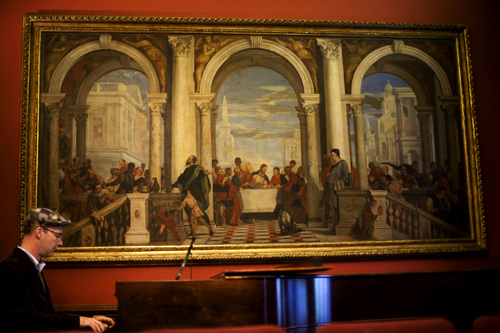
Team player
Austin Grimes, who is an accomplished pianist himself, has been a Harvard piano technician since 2001, working on some of the more than 200 pianos scattered about campus. Here he is in the Pusey Room of the Memorial Church.
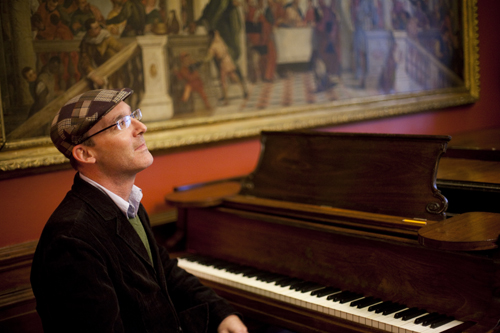
A doctor’s ear
“I diagnose little clicks, buzzes, rattles. I would say I am fairly fluent in that language by now,” he said.
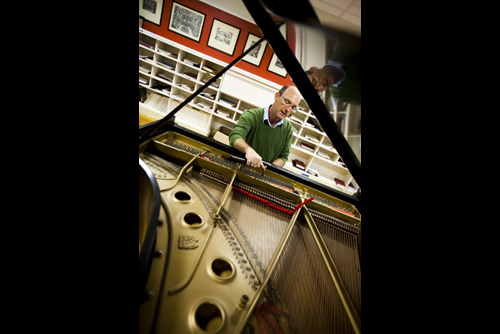
Technical perfection
“What I aim for with my work is the best overall improvement of the instrument,” says Grimes.
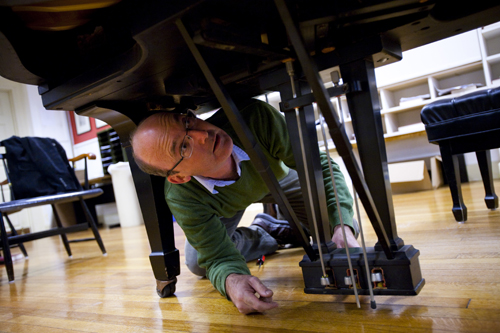
From the bottom up
A pedal is in need of repair on the church piano.
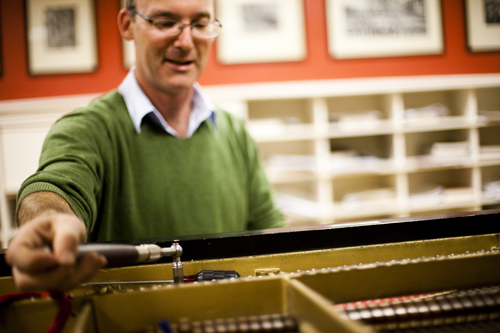
Trained to tune
Grimes began volunteering at a local piano workshop, eventually learning the restoration and repair business.
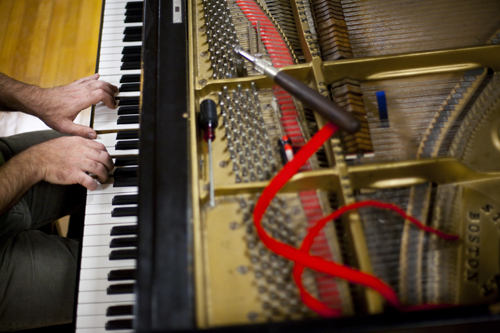
Hands-on technique
In Grimes’ job, musical perfection often is not the real goal. Many of the pianos that he tunes need repairs that are too costly.
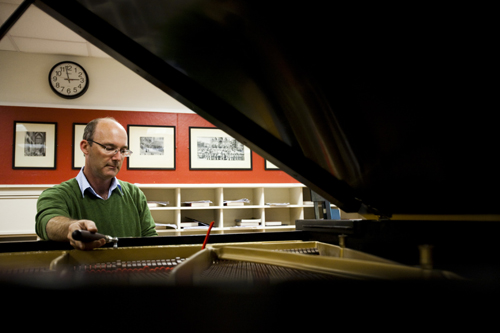
Music lover
At Bard College in New York, Grimes studied Bach and Beethoven, along with music history.
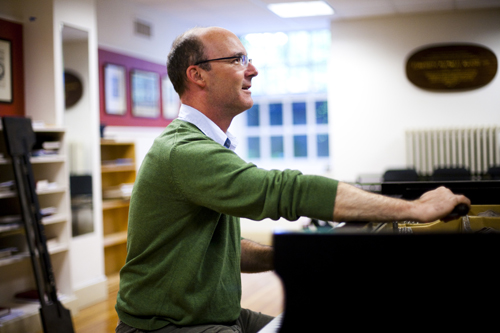
Soft touch
The piano in the choir room at the Memorial Church benefits from Grimes’ gentle handling.
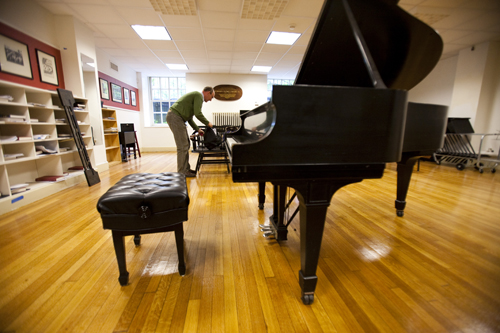
Perks of the job
Grimes relishes exploring some of Harvard’s hidden corners. Here he tunes and repairs the piano in the choir room of the Memorial Church.
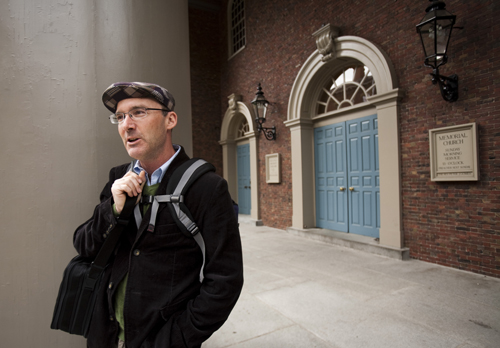
Caretaker
“During my time here I’ve gotten to know a lot of these pianos,” he admits, “and I do think of them like old friends. I really care about them.”
In Grimes’s job, musical perfection often is not the real goal. Many of the pianos that he tunes need repairs that are too costly. Replacing parts on older instruments can get quite pricey, so he works with what he has.
“What I aim for with my work is the best overall improvement of the instrument.”
Grimes considers himself a protector of the pianos he attends, helping them to sound as good as they can.
“During my time here I’ve gotten to know a lot of these pianos,” he admits, “and I do think of them like old friends. I really care about them.”




